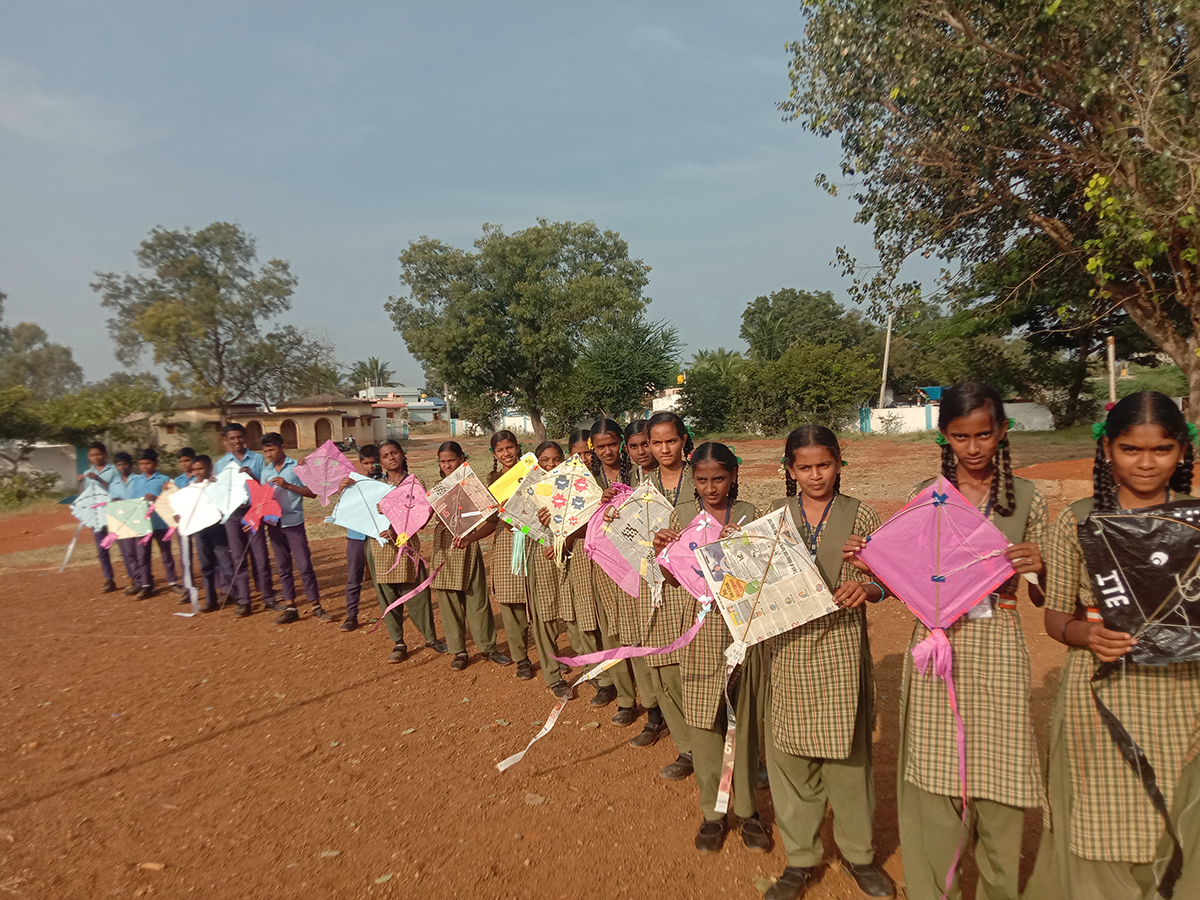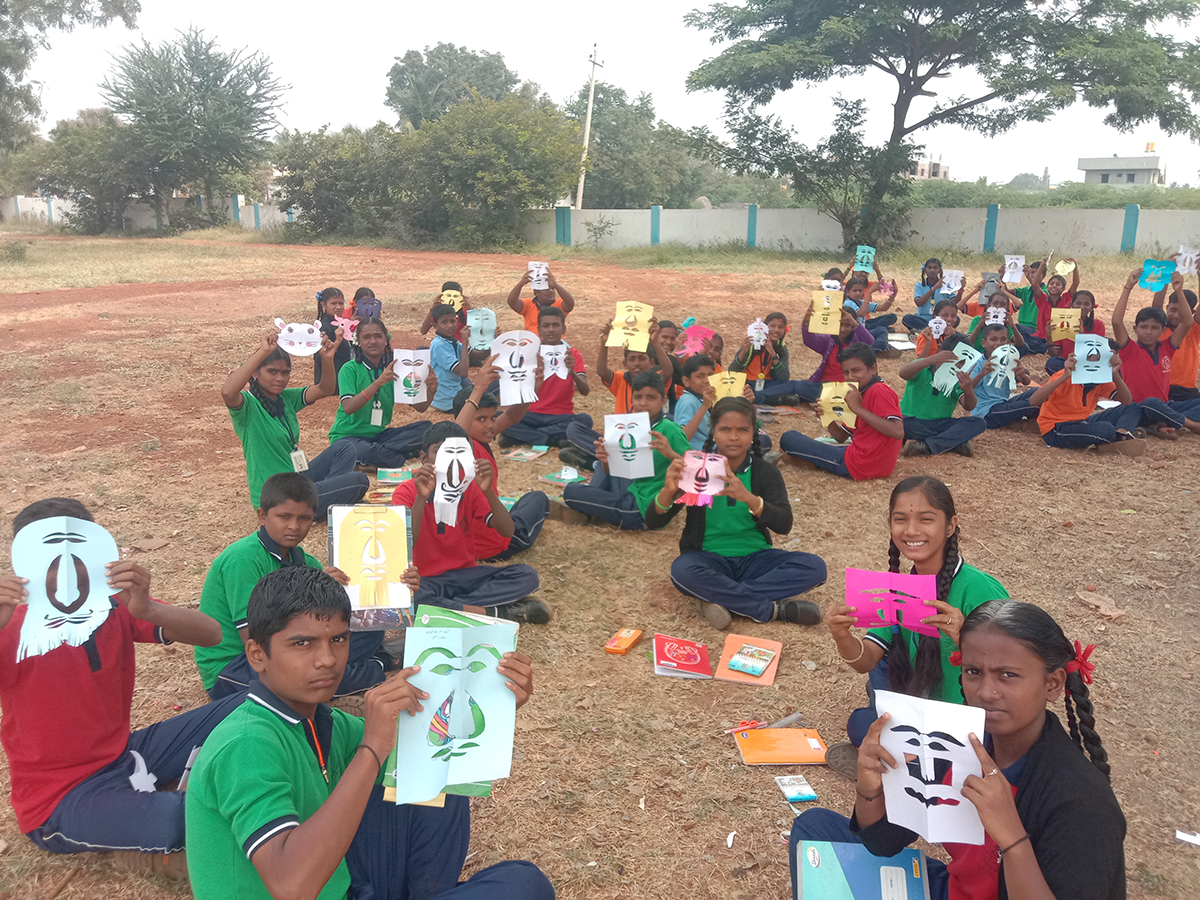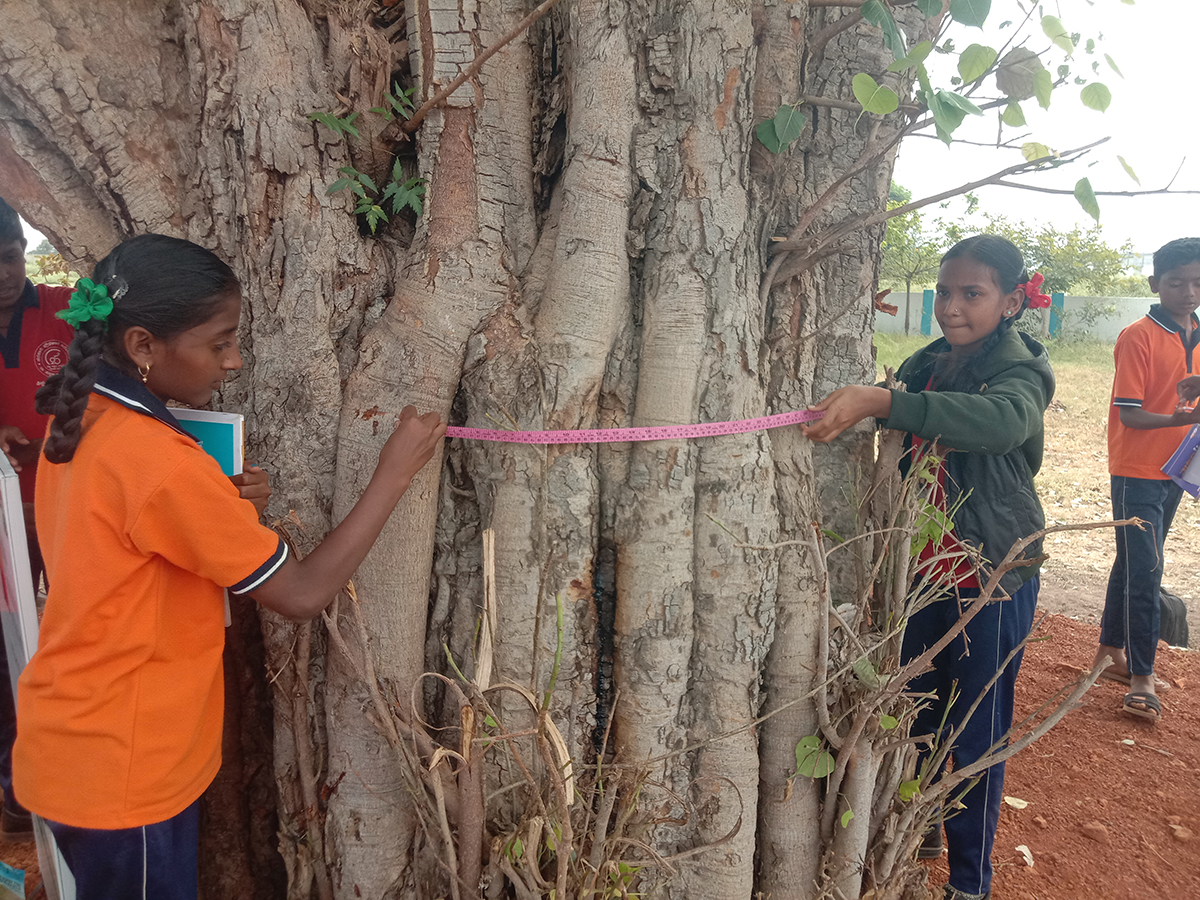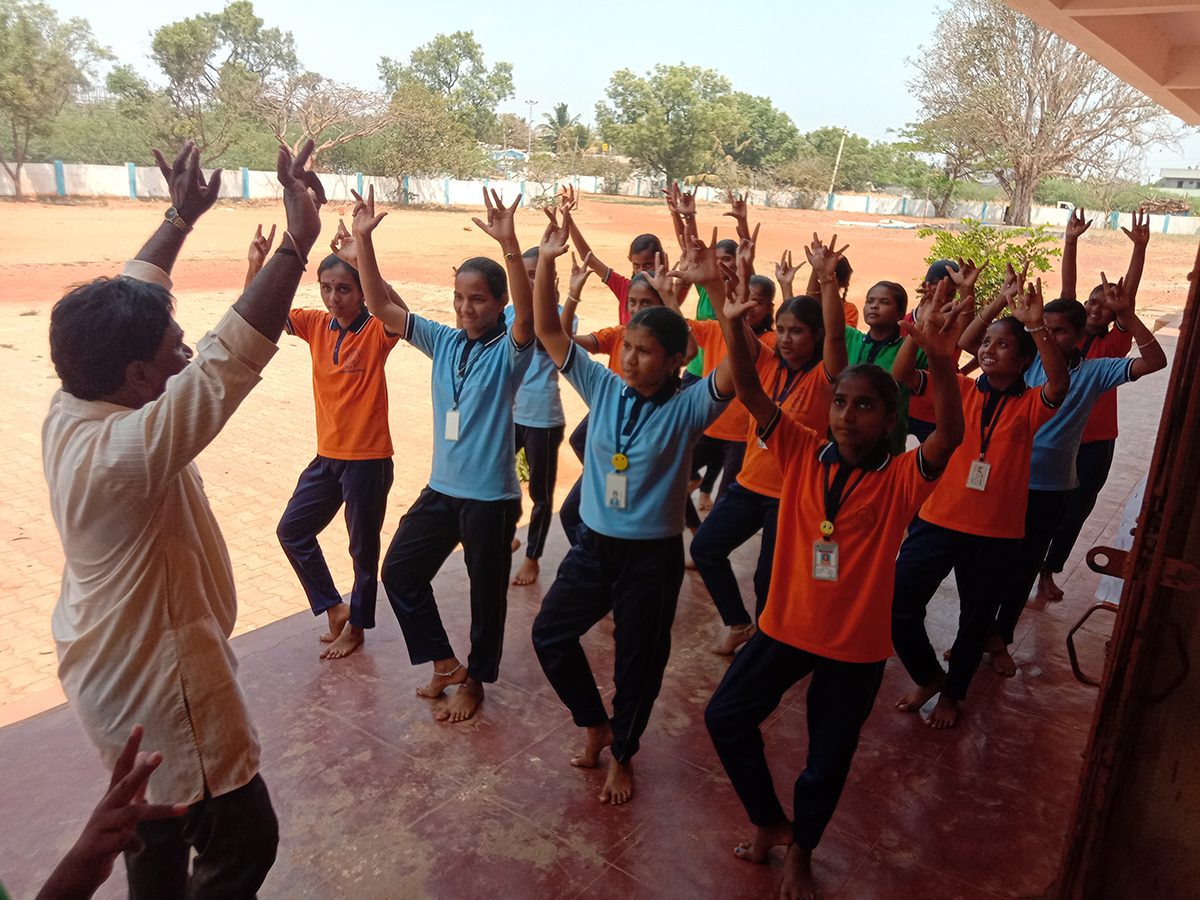Lingaraj Veerappa Ramapur
Project Period: One year three months
This Foundation Project implemented by IFA will engage eighth grade students of the Government Higher School, Kiresura in Hubli taluk, Dharwad district. Through various arts-integrated activities like reading, writing, storytelling, music, theatre and creating a herbarium this project connects to curriculum in geography, language and science. The project, titled Aralikatte - Terada Vaachanaalaya, will create a platform under a tree as an open library to connect students to nature and encourage creative expression. The outcome of the project will be a publication and an exhibition in the school. Lingaraj Veerappa Ramapur is the Project Coordinator for this project.
Having 25 years of experience, Lingaraj Veerappa Ramapur is an English teacher and a writer who has published various books for children like Gubbacchigondu Maneya Maadi (A Nest for a Sparrow), Vijnaanada Kathegalu (Science Stories), Nisarga Nyaaya (Justice from Nature), a play, and Bhoomi Maaratakkillaa (Earth Not for Sale) to mention a few. He is a member of the various committees of the Karnataka Education Department. He has been a facilitator at national level training on language, children's literature and theatre. Lingaraj has also organised state-level training programmes for students collaborating with Bala Vikaasa Akademi. Lingaraj Ramapur has received many awards for his contribution to the field of education and Kannada literature. Given his experience, he is best placed to be the Project Coordinator of this Foundation Project of IFA.
In the middle of the school grounds, a 70 to 80-year-old Banyan tree adorns the centre. This tree has an inseparable relationship with students, parents and teachers. Although there are more than 50 tiny trees on the school grounds, Lingaraj and his friends proudly refer to this Banyan tree as the Icon of our School. The main objective of this project is to construct a platform Aralikatte for this tree with the help of parents, bringing various artistic activities to it, and to stimulate the spirit of inquiry among the students.
Trees come alongside a plethora of benefits, not only to the environment but also to us, as humans. They are proven to improve overall health and well-being, making it more important than ever to utilise natural resources to our advantage. This project offers engaging experiences with trees as a learning tool, both inside and outside the classroom, taking students beyond what might be learned in books or a science class.
Through this project, the Aralikatte Terada Vaachanaalaya will be a place where students gather for communal learning and embracing knowledge that is grounded in their lived experience and local community. In this regard, this project reclaims a different way of learning, one that cuts across conventional disciplines of knowledge and welcomes marginalised forms like skill building, creative writing, public readings and performance. During the project, the school grounds will transform into an outdoor classroom as students, teachers, and volunteers from parents work together. They create a valuable outdoor learning area where students will connect around their local inspirations and the natural world around them.
With intention to encourage thinking and discussion, Lingaraj will include visual artists, science teachers, writers, and theatre artists in conducting a series of creative engagements for students to discuss, read and write about their observations. The focus will be on insects, birds and mammals, documenting their adaptation to trees and shrubs. The observations will be transformed into creative writings, sketches, herbariums, autographs, clay modelling, dramatic presentations, storytelling and illustrations. Regarding the herbarium activity, students will be encouraged to recognise and collect different types of leaves of the various species of trees that will be found around the school. A sheet with images of the leaves is also distributed, which can be used as a recognition tool by the students. The result may be extremely personalised: in addition to the leaves, students will be encouraged to insert drawings of the leaves, and descriptions in words, poems, and quotes. This literature will be published in the school newsletter Saaligudi periodically.
The outcomes of the project will be the publications and an exhibition in the school. The Project Coordinator's deliverables to IFA, along with the final report, will be copies of the publications, photographs, and video documentation of the entire project.
This project suitably addresses the framework of IFA’s Arts Education programme in the manner in which it attempts to connect students and schools to the cultural knowledge of the local communities they live in.
IFA will ensure that the implementation of this project happens promptly and funds expended are accounted for. IFA will also review the progress of the project at midterm and document it through an Implementation Memorandum. After the project is finished and all deliverables are submitted, IFA will put together a Final Evaluation to share with Trustees.




